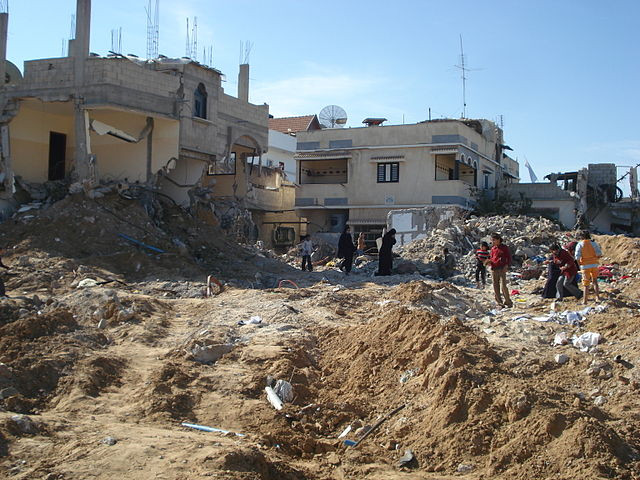The Israeli military's air campaign in the Gaza Strip escalated over the weekend, with a deadly strike hitting the densely populated Al-Maghazi refugee camp, raising the Palestinian death toll to over 9,700 since early October. The attack, which local health officials say killed 45 people, including a photojournalist's family, occurred despite Israel's instructions for civilians to seek refuge in the southern parts of Gaza.
The Hamas-run health ministry reported the fatality figure after Saturday night's strike, while Dr. Eyad Abu Zaher, director of Al-Aqsa hospital, indicated that at least 52 lives were lost. The Israeli military, which has been targeting the Hamas-led enclave with the declared aim of neutralizing the group following its attacks on Israel, has not confirmed its involvement in the specific incident at the refugee camp but noted that its operations in southern Gaza are intelligence-driven and focused on terrorist elements.
Muhammad Al-Alul, a photojournalist, experienced personal tragedy when he lost his wife and four of his children in the blast. "I wish I had been with them and been killed with them," a grief-stricken Al-Alul shared with the BBC.
BREAKING: ISRAELI IOF WARPLANES DESTROY AN ENTIRE CIVILIAN COMPLEX IN THE AL-MAGHAZI REFUGE CAMP
War Crimes pic.twitter.com/C9j1nApavE — Sulaiman Ahmed (@ShaykhSulaiman) November 3, 2023
The intensity of the strike brought forth chilling scenes, as eyewitness accounts and videos showed buildings reduced to rubble, with locals desperately searching for survivors. One of the residents, Jamal Al Aloul, recounted the horror of his building collapsing, claiming the lives of his children.
The dire situation in the Al-Maghazi camp is a stark reminder of the ongoing conflict's human cost, with the United Nations estimating that the camp, before the conflict, housed 33,000 people in a compact area. The camp, known for its narrow alleys, has become even more congested with people fleeing the north's bombardments.
Dr. Khalil Al-Daqran, head of nursing at Al-Aqsa hospital, lamented the facility's struggle to cope with the influx of casualties, citing a shortage of fuel and supplies hampering treatment efforts. The health system's overwhelm is evident as bodies, including those of children, continue to arrive at hospitals.
Israel's campaign in Gaza, which intensified after Hamas' incursion on October 7, has been met with international criticism amid the worsening humanitarian crisis. Despite global calls for a ceasefire to allow humanitarian aid, Israeli Prime Minister Benjamin Netanyahu remains steadfast in continuing military operations until Hamas releases all hostages taken during its assault.
As the IDF continues to target Gaza in an attempt to dismantle Hamas' capabilities, the impact on civilians is drawing increased scrutiny. With each passing day, the scale of the destruction and the rising civilian toll are testaments to the conflict's relentless devastation.





